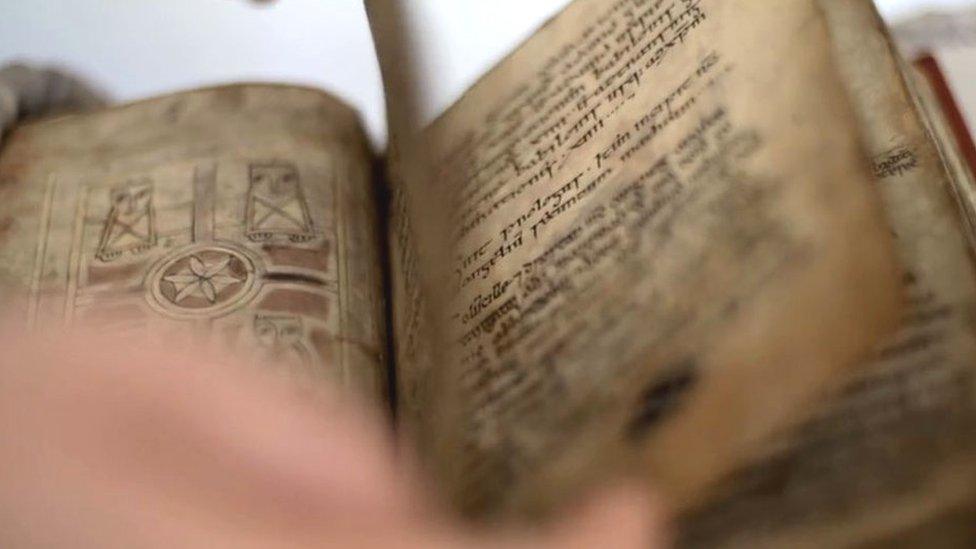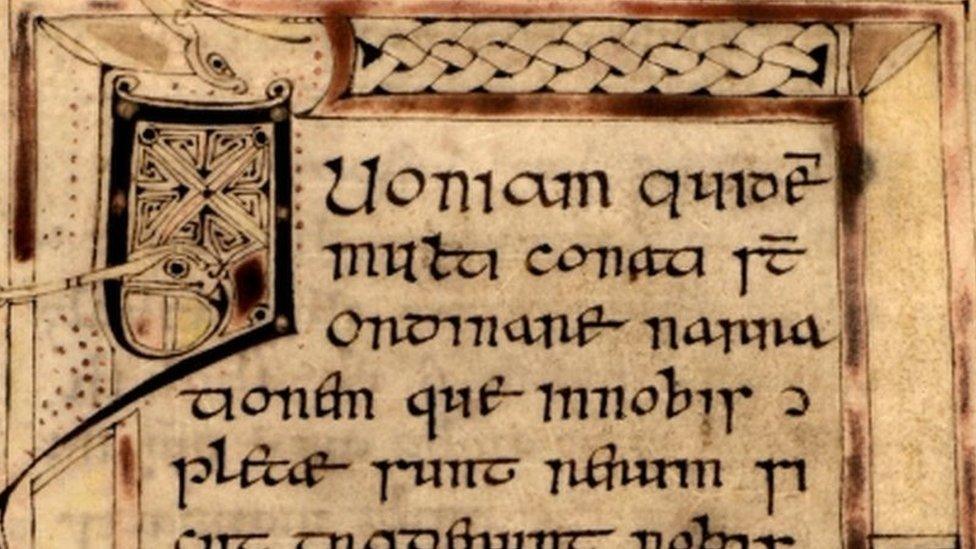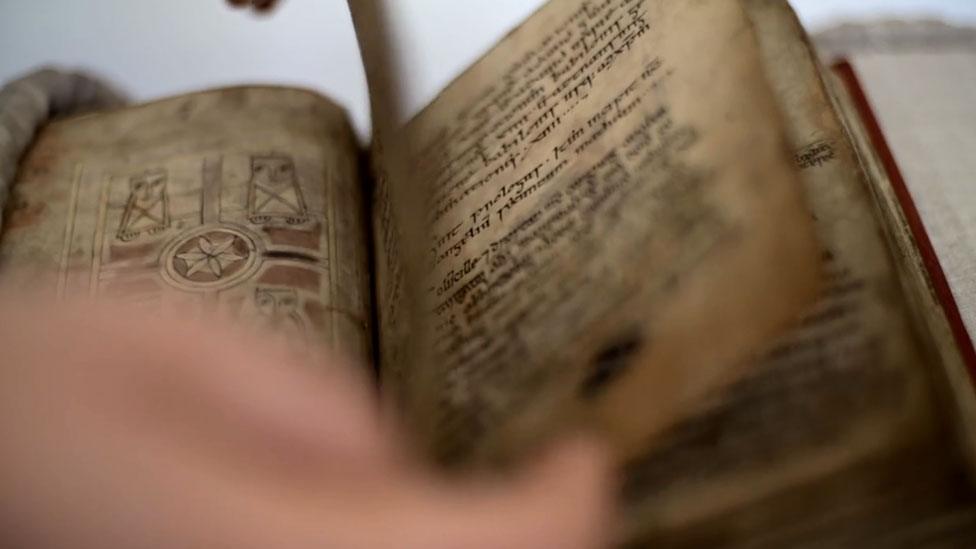The Book of Deer to return to north east Scotland after hundreds of years
- Published

The Book of Deer is widely believed to be the oldest surviving Scottish manuscript
The Book of Deer - believed to be the oldest surviving Scottish manuscript - is to return to the north east for the first time in hundreds of years.
The 10th Century manuscript is noted for containing the earliest surviving Gaelic writing from Scotland.
It is held in the collections of Cambridge University.
Aberdeenshire heritage group The Book of Deer Project has received £128,588 from the National Lottery Heritage Fund to secure its return on loan next year.
The return will also be marked by a 10-week excavation searching for the Monastery of Deer, where the book is believed to originate, near Aden Country Park in the Mintlaw area.
The Monastery of Deer had the historic book, external in its care by 1,000AD, before the building fell out of use when its monks moved.
It provides an insight into the early church, culture and society of the period, and also features Latin text.
It will be on loan from Cambridge University Library, where it has been since 1715, and will be exhibited at Aberdeen Art Gallery next summer.

Anne Simpson, chairwoman of the Book of Deer Project, said they were "delighted" to have secured the funding.
She said: "We act as the catalyst for renewed interest, research and community engagement surrounding the book in the north east of Scotland and beyond.
"The central objective of our project is to celebrate the book and its heritage in a modern context.
Dr Jenny Downes, exhibitions and public programming manager at the University of Aberdeen, said: "Artefacts like the Book of Deer are invaluable in shining a light on our past and how that shapes who we are today so we are looking forward to being part of sharing this knowledge with the wider community."
Related topics
- Published8 January 2018
